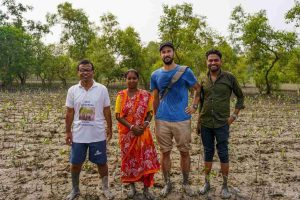8 Techies Who Switched Careers to Organic Farming & Found Ways to Make Profits
Does leaving your 9 to 5 job and moving to organic farming sound interesting? These stories will leave you motivated.
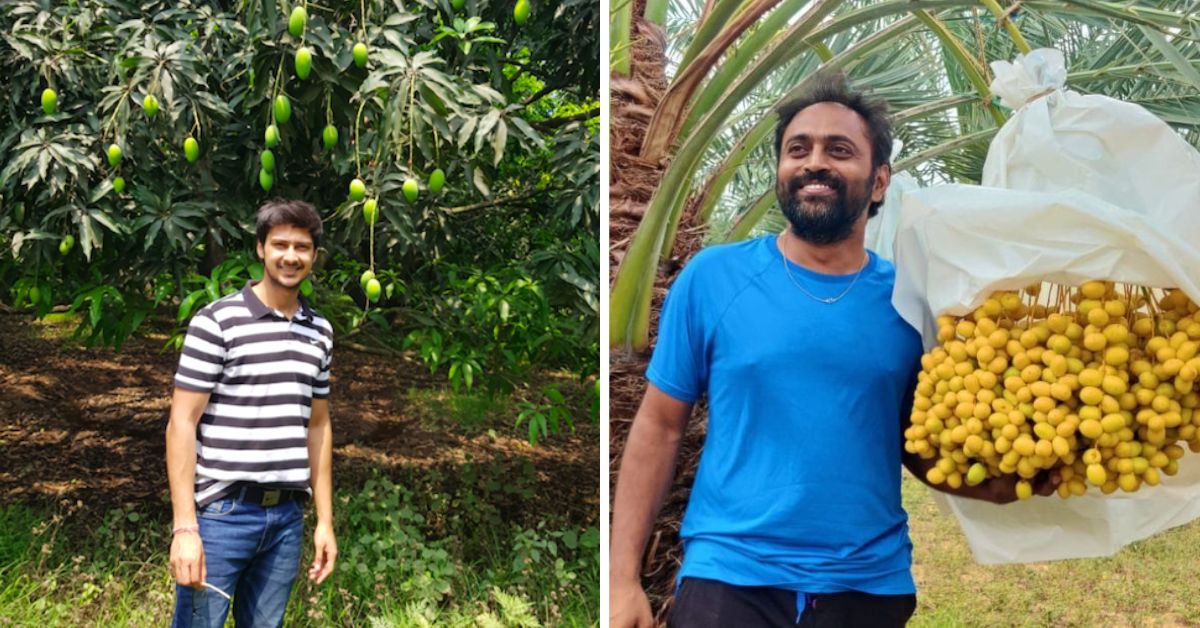
A pleasantly surprising trend is taking root in India’s fields.
Imagine switching the familiar click-clack of a keyboard for the earthy thud of a shovel and a hoe. A growing number of individuals, especially techies, are making this switch and embracing organic farming practices.
While some may yearn for a return to nature, the statistics paint a compelling picture: India has become the world leader in organic producers, boasting nearly 3 million hectares dedicated to this method.
This marks a significant departure from the historical reliance on chemical fertilisers. Regardless of the driving force, organic farming is undeniably gaining momentum in India, with a particularly interesting contingent of tech-savvy pioneers at the forefront.
Here is a list of techies-turned-farmers, many of whom are earning better than their salaries.
1. Roja Reddy and her toil in the soil
Like most parents, Roja Reddy’s parents, who have been farmers for their entire lives, wanted her to get a job in the city. As per her family’s wishes, she did her bachelors in engineering and got a job in Bengaluru.
However, her wish to become a farmer never left her. After working for a few years, during the COVID-19 pandemic, she decided to move back to her hometown and do organic farming on her ancestral land in Donnehalli.
She was, however, struck with scepticism and mocked for leaving her high-paying job farming. But she persevered and formed a network of 500 organic farmers throughout the country.
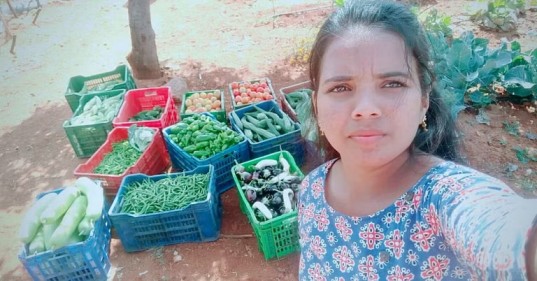
Roja’s dedication paid off, turning 50 acres of land into a profitable venture, earning around Rs 1 crore annually. Additionally, she has also inspired 25 farmers in her village to switch to organic farming.
2. Nanda Kishore Reddy’s COVID-19 stint
While R Nanda Kishore Reddy was working a steady job as an IT professional for over three years, he felt something was amiss. So when the COVID-19 pandemic hit and the country went into a lockdown, he decided to move back home to Railapur village, Hyderabad.
“While I had seen my father work on our farm, I never pursued it. Back then, farming didn’t seem like a lucrative venture to me. However, when everyone was buying food to store in bulk during the lockdown, it became clear to me just how important agriculture is to our survival,” he says.
Combining his knowledge of technology and his father’s farming, he started farming on over two acres, including a 1-acre polyhouse. The father and son duo primarily grows English cucumber and spinach, and obtain annual yields of approximately 30 tonnes.
3. Someshwar Singh finding joy in farming
Similar to Nanda Kishore’s story, Someshwar also moved back to his village in Uttar Pradesh to work from home. At the time, he did not have any plans of becoming a farmer but life, as he says, had different plans.
“As a kid, I used to go to the farm with my father… so when I had some free time working from home, I decided to give it another try!” he says. After a lot of research as to which crop would be better to harvest, he realised papaya farming could be beneficial.
Presently, he has a four-acre papaya farm that yields a revenue of about Rs 15 lakh a year. While he still works at his corporate job, Someshwar says that becoming a farmer in his hometown has helped him improve his mental health and find peace.
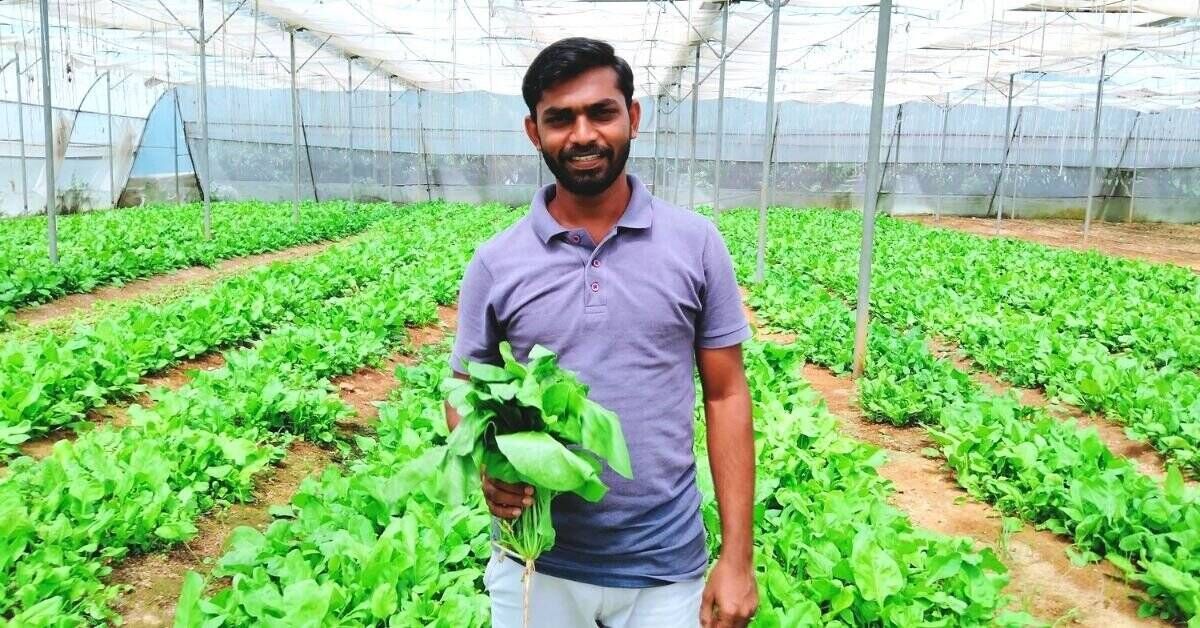
4. Nagendra Naidu Dharmavarapu following his dad’s footsteps
For Nagendra Naidu Dharmavarapu, one thing that he was sure about was that he will one day switch to farming. “I know that there is a certain perspective towards taking up farming. But I was very sure from the beginning of my career that I would end up in the agriculture industry,” says Nagendra.
Born into a family of farmers, he lived in close proximity to problems that the farmers faced. Even when he was pursuing his engineering degree, he would return often to his family farms and work with his father. After working for a few years developing startups, he decided to quit his job and become an agri-preneur.
He started Farmties India Private Limited and started growing yellow dates at his ancestral farm. Today, he makes Rs 3.5 lakh per acre in profits selling yellow dates. While he started with just 20 acres of farming land is now an empire of more than 1,400 acres of cultivation.
5. Alankrutha Chandra and Meher Gundavarum’s toxin-free life
Living in the US Alankrutha Chandra and Meher Gundavarum wanted to live a toxin-free life. When the COVID-19 pandemic struck, the couple saw an opportunity and time in hand to switch to a more sustainable life. They founded a brand, Elephant In You, which covers the three basics — food, shelter and clothing.
Alankrutha moved to India and transformed Meher’s family’s 8-acre farm into an organic haven, growing diverse fruits, vegetables, legumes, and rice. The farm welcomes visitors to learn about organic farming and enjoy farm life.
They also make naturally dyed clothing made from unbleached cotton, linen, and hem. And the cherry on the cake — they built a limestone house that stays cool in summer, saving energy.
They plan to construct eco-friendly mud houses for guests to experience authentic farm living.
6. Mandeep Verma’s farming dream
Mandeep Verma left his corporate job in Delhi to start Swaastik Farms, an organic fruit farm in Shilli village, Himachal Pradesh. The 5-acre farm, nestled in the Himalayan foothills, produces kiwis and apples without using any chemicals, and yields an annual revenue of Rs 40 lakh.
With no prior farming experience, he learned through online resources and consultations with local agricultural experts, transforming his barren, sloped land which took five months. He planted 150 kiwi plants, using organic methods like jeevamrut and sapta dhanyankur for soil nutrition, and later added 1,200 apple trees.
Presently, his farm now has 700 kiwi plants yielding 9 tonnes of fruit annually, with expected production increases. He also developed two nurseries with 12,000 saplings for additional revenue.
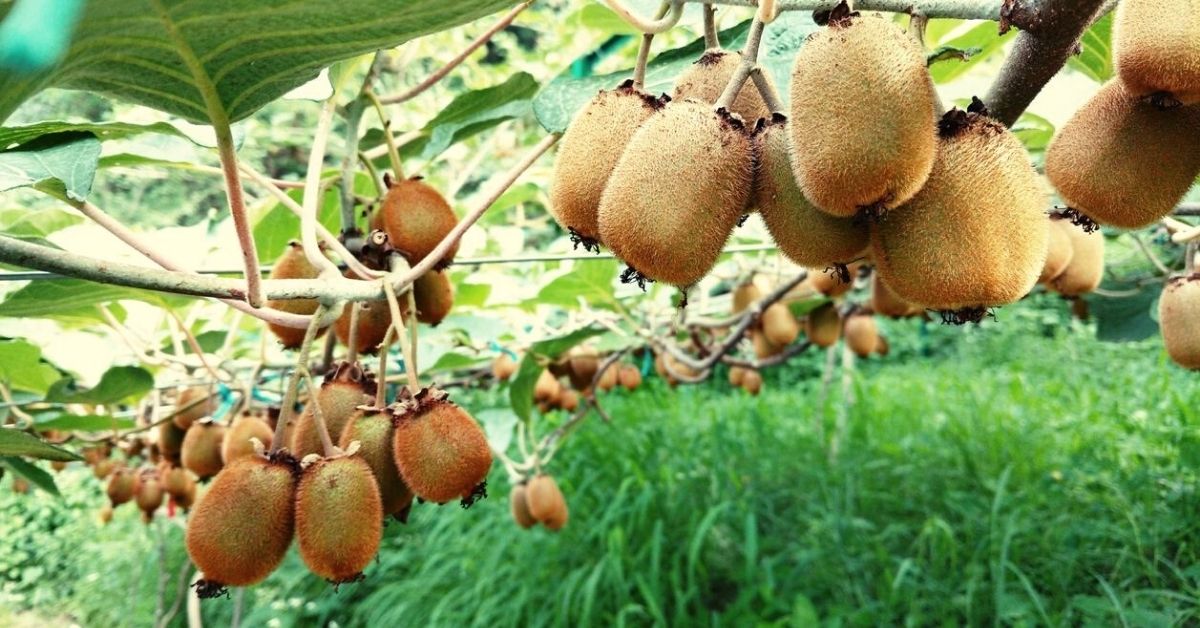
7. Rohan Prakash’s certified mangoes
Growing up in a farming family watching his father and grandfather, Rohan Prakash felt an affinity for fields and farms. The engineer’s passion for agriculture led him to convert their farm into a completely organic operation.
This shift to organic farming yielded immediate improvements in the quality and size of their mangoes. The transformation process started during his second year of college when he and his father decided to replace pesticides with Neem oil extract.
Encouraged by the results, Rohan branded their produce as “Sure Organics”. Rohan’s farm grows various mango varieties, including dasheri, langra, chaunsa, and safeda, along with lychee and turmeric. Over three years, his farm achieved organic certification, boosting their revenue significantly and increasing overall productivity by 40%.
8. S Sivaganesh’s homecoming
Working as an engineer at an atomic station in Rajasthan, S Sivaganesh always felt something was amiss. Growing up in nature with a farmer father, he longed to go back home and start farming.
After working for four years, he decided to move back to his hometown in Meenakshipuram, at the Kerala-Tamil Nadu border, in 2010.
Sivaganesh asked his father for 6 acres of land to practise organic farming. “I planted nutmegs as an intercrop along the coconut plantations of 1,600, and took up mango, turmeric, pepper, and areca nut plantations across my 6-acre farm along with it. I used organic methods for all the crops,” he says.
His started meaning Rs 2 lakh per acre as a combined income from all plantations. His secret — farming techniques such as the intercropping method, a practice of growing multiple crops in close proximity, and the drip-irrigation technique, among other agriculture-allied practices.
(Edited by Padmashree Pande)
If you found our stories insightful, informative, or even just enjoyable, we invite you to consider making a voluntary payment to support the work we do at The Better India. Your contribution helps us continue producing quality content that educates, inspires, and drives positive change.
Choose one of the payment options below for your contribution-
By paying for the stories you value, you directly contribute to sustaining our efforts focused on making a difference in the world. Together, let's ensure that impactful stories continue to be told and shared, enriching lives and communities alike.
Thank you for your support. Here are some frequently asked questions you might find helpful to know why you are contributing?



